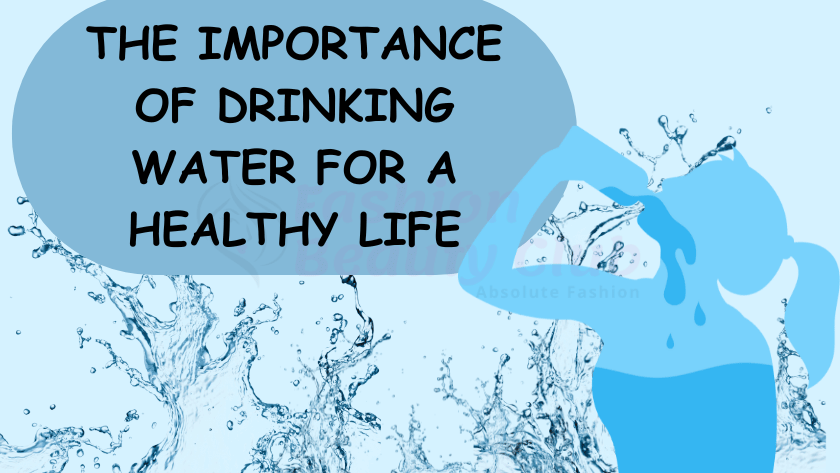Why Staying Hydrated is Vital for Your Health
Water is life. This simple, colorless liquid plays a critical role in keeping our bodies healthy and functioning properly. Despite its importance, many people overlook the need to drink enough water daily. In this article, we will explore the importance of staying hydrated, the benefits of water for your body, and practical tips to help you meet your daily hydration goals.
What is Hydration?
Hydration means having enough water in your body to carry out essential functions. Our bodies are made up of around 60% water, and every system depends on it. From regulating body temperature to transporting nutrients, water is a vital resource for our well-being.
Benefits of Drinking Water
1. Supports Vital Body Functions
Water helps maintain essential functions such as:
- Regulating body temperature through sweating.
- Transporting nutrients and oxygen to cells.
- Lubricating joints, making movement smoother.
- Eliminating toxins through urine and sweat.
2. Boosts Energy Levels
When you’re dehydrated, your body struggles to perform. This can lead to fatigue and a lack of energy. Drinking water ensures your body has the fuel it needs to stay active throughout the day.
3. Improves Brain Function
Staying hydrated enhances concentration, memory, and mood. Even mild dehydration can impair brain performance, making you feel irritable or unfocused.
4. Aids Digestion
Water is essential for a healthy digestive system. It helps break down food and prevents constipation by keeping your bowel movements regular.
5. Promotes Healthy Skin
Proper hydration keeps your skin looking healthy and youthful by maintaining its elasticity and preventing dryness.
6. Supports Weight Management
Drinking water can help control your appetite and boost your metabolism, making it easier to maintain or lose weight.
What Happens When You Don’t Drink Enough Water?
When your body lacks water, it can lead to dehydration. Here are some common signs of dehydration:
- Feeling thirsty.
- Dry mouth and lips.
- Dark yellow urine.
- Fatigue or dizziness.
- Headaches or difficulty concentrating.
Severe dehydration can result in serious health issues, such as kidney stones, urinary infections, or heatstroke.
How Much Water Do You Need Daily?
The amount of water you need depends on various factors such as age, weight, activity level, and climate. However, a general rule is:
- Men: About 3.7 liters (15.5 cups) per day.
- Women: About 2.7 liters (11.5 cups) per day.
This includes all fluids consumed through beverages and food.
Tips to Stay Hydrated
Here are some simple ways to make sure you drink enough water throughout the day:
1. Start Your Day with Water
Drink a glass of water as soon as you wake up. This jumpstarts your metabolism and helps rehydrate your body after hours of sleep.
2. Carry a Water Bottle
Having a water bottle with you makes it easier to sip water throughout the day.
3. Add Flavor to Your Water
If plain water feels boring, add slices of lemon, cucumber, or mint to make it more enjoyable.
4. Set Reminders
Use alarms or smartphone apps to remind you to drink water regularly.
5. Drink Before Meals
Having a glass of water before meals not only helps with hydration but also prevents overeating.
6. Monitor Your Urine
Light yellow or clear urine indicates you’re well-hydrated, while darker shades suggest you need more water.
7. Include Water-Rich Foods
Eat fruits and vegetables with high water content, like watermelon, cucumber, and oranges.
Common Myths About Hydration
Myth 1: You Only Need to Drink Water When Thirsty
By the time you feel thirsty, your body is already mildly dehydrated. It’s better to drink water regularly rather than waiting for thirst.
Myth 2: Coffee and Tea Dehydrate You
While caffeine can have a mild diuretic effect, moderate amounts of coffee or tea still contribute to your overall fluid intake.
Myth 3: You Can Only Stay Hydrated with Water
Other beverages like milk, juices, and herbal teas, as well as water-rich foods, also contribute to hydration.
Special Considerations for Staying Hydrated
- During Exercise: Drink water before, during, and after physical activity to replace lost fluids.
- In Hot Weather: Increase your water intake to prevent dehydration caused by sweating.
- For Older Adults: Aging reduces the sense of thirst, so it’s important to consciously drink water.
- For Pregnant and Breastfeeding Women: Higher water intake is essential to support the baby and milk production.
Conclusion
Staying hydrated is one of the simplest yet most impactful things you can do for your health. Water supports your body’s essential functions, improves energy and focus, and keeps you feeling your best. By incorporating healthy hydration habits into your daily routine, you can ensure that your body gets the water it needs. So grab a glass of water and take a step toward a healthier you!
Let me know if you’d like this article tailored further for a specific audience or platform!




